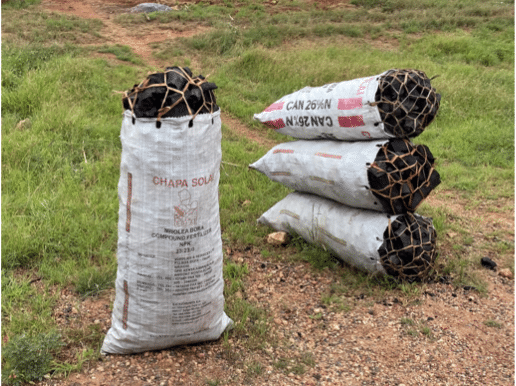
The African continent is facing an energy crisis with ninety percent of the Sub-Saharan African (SSA) population relying on woodfuels, including charcoal, which is often unsustainably harvested. Sustainable charcoal offers a potential solution to Africa’s energy crisis, but varying levels of regulation and government oversight stand in its way to fulfilling its potential as an important solution to Africa’s energy crisis. A recent paper titled, “From Crisis to Context: Reviewing the Future of Sustainable Charcoal in Africa,” argues that an array of complicated and often oversimplified factors contribute to the misrepresentation of charcoal within the media and in policy debates. The paper’s authors, which includes Dr. Tuyeni H. Mwampamba–member of The Charcoal Projects’ board and Research Professor at the Institute for Ecosystems and Sustainability Research–argues that in order to fully understand charcoal’s potential future sustainability, it needs to be considered within its, “historical, social, and environmental contexts.” Charcoal, as a fuel source, is highly divisive among politicians, academics, and policy makers. This paper identifies two primary narratives that define the conversation surrounding its future viability, and it offers its own narrative which is more inclusive of the challenging realities surrounding the charcoal industry.
Charcoal Crisis Narrative
The first, described by the paper as the “Charcoal Crisis Narrative,” paints charcoal as incompatible with other sustainable energies and is to blame for a forthcoming ecological disaster in Africa. As a part of this narrative, “charcoal is inextricably associated with poverty, underdevelopment, and environmental degradation,” and the only solution to the problem is to remove charcoal from Africa’s energy mix. This view is reflected in much of the media coverage of charcoal as a fuel source in Sub-Saharan Africa (SSA) with even progressive publications like Global Citizen contending that, “charcoal has put deforestation into overdrive, exacerbating already deadly climate change effects, and is killing people in their homes.”
In addition to deforestation, the charcoal industry is blamed for countless other problems on the continent including intensifying desertification and fueling extremist violence. Furthermore, some argue that charcoal is a cheaper source of energy in relation to other alternatives. According to Rose Twine, a Ugandan entrepreneur selling eco-friendly cookstoves, “‘Charcoal is not actually cheaper, people are just stuck in their old ways.’” While there are strong voices that are working against charcoal as an energy solution, there are opposing views that seek to argue that we can improve its sustainability.
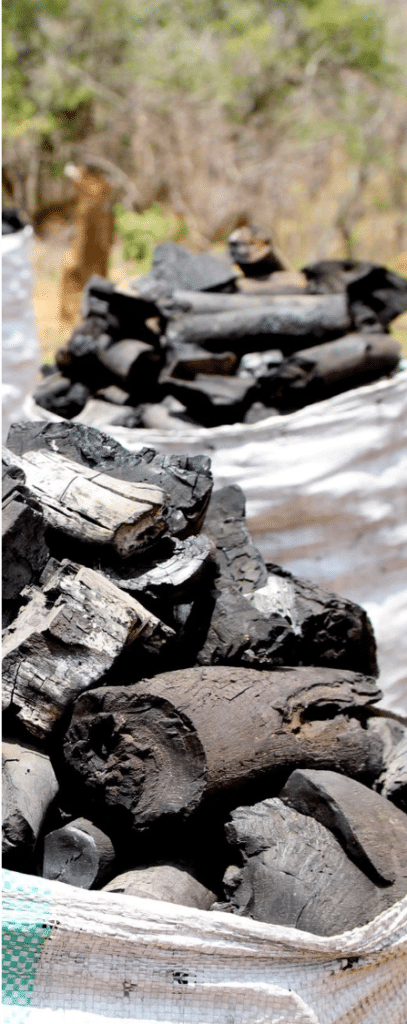
Sustainability through Formalization Narrative
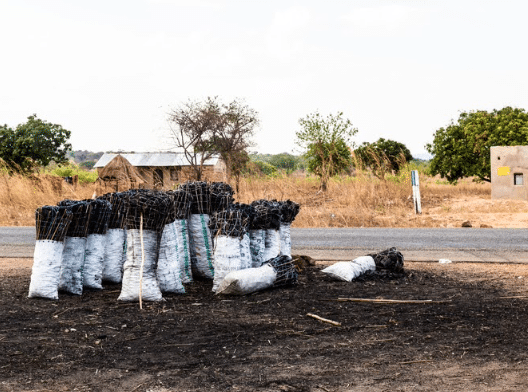
The primary competing narrative that is identified by the article is “Sustainability through Formalization.” This narrative posits that charcoal can be made sustainable through the formalization of “production, trade, markets, and consumption technologies,” Proponents of “Sustainability Through Formalization,” argue that charcoal offers an attractive solution to Africa’s energy issues.
This claim is supported by a body of research that points out that the charcoal sector is not uniform across the continent, but rather it takes on varying shapes and roles within African society. According to a paper by Nike Doggart and Charles Meshack, “charcoal can be produced without permanently deforesting or degrading a forested area by protecting harvested areas from cultivation, intensive grazing, and fire, thus enabling natural regeneration.”
This idea was reflected in the conversations held at a UN-FAO (Food and Agriculture Organization) conference on woodfuel in November 2021 with Abebe Haile Gabrielle, FAO Assistant Director General, stating that, “we need the collective involvement of all stakeholders and to engage on innovative solutions to making the production and trade of woodfuel sustainable.”
Putting Charcoal in Context
While both of these narratives hold aspects of the truth, the paper co-authored by Mwampamba argues that the true situation escapes both narratives, and it proposes an alternative narrative entitled “Charcoal in Context,” which illustrates and incorporates the complex cultural contexts in which charcoal exists: “We approach charcoal as a resource embedded in specific political, economical, and historical contexts entailing significant socio-economic complexity.”
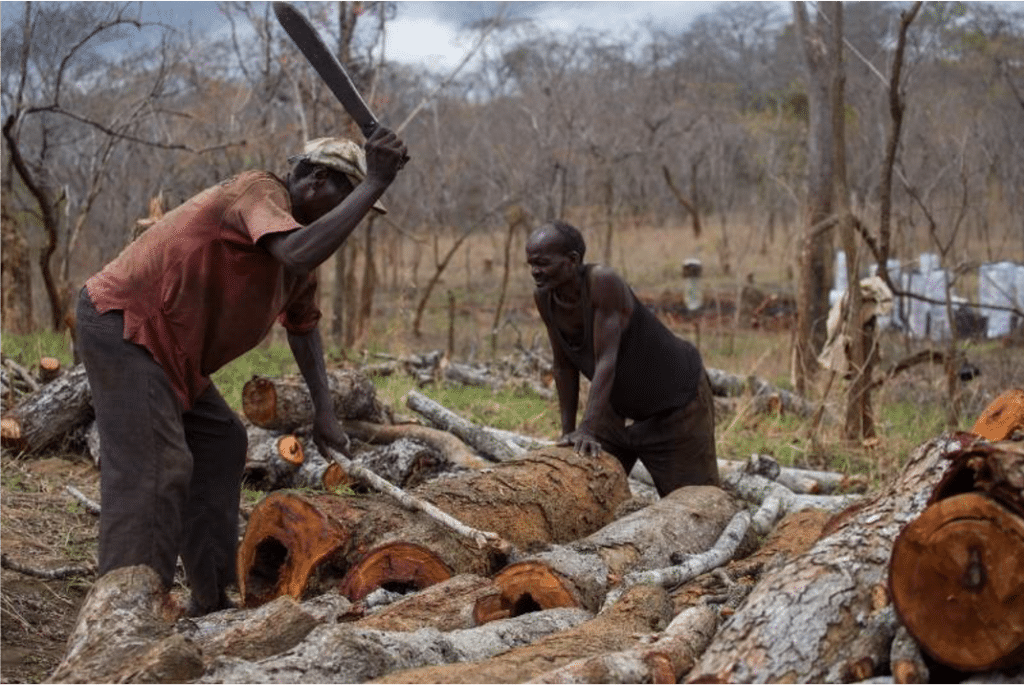
A running theme of this paper is that the charcoal production sector is much more complicated than either of the existing narratives suppose, and the paper argues against the assumption all charcoal is the same everywhere. A view commonly held when considering the African charcoal sector. There are complex social pressures within the charcoal sector, and the authors establish a prominent relationship between power inequality and production sustainability within the sector. Changing cultural forces can modify the face of the charcoal sector quickly – rapidly expanding regional urban centers, unexpected displacement due to natural disasters, conflict, and shifts in labor arrangement all impact the socio-economic and cultural contexts surrounding charcoal in unique ways.
It is only natural to oversimplify complex situations and policy discussions, and the charcoal sector is no different. However, the paper identifies labor, land, technology, and political authority as four key contexts that have suffered from this oversimplification and subsequently dives deep into each. For example, the assumption of universal informality when it comes to labor laws and regulations within the charcoal industry is incorrect, as the sector is not uniformly informal. Certain aspects of the production chain in regions of SSA are regulated while others are not. In the context of labor, for instance, there are rapidly shifting labor conditions in SSA under which charcoal is produced, and those variable conditions result in some aspects of the charcoal value chain being formal and others being informal simultaneously. Pressure to formalize small scale producers with commercial entities would take away important sources of livelihood for many households and farms. When viewed in context, the variability of the labor force brings flexibility to the sector which can result in income improvements for small producers, therefore, this facet of the industry must be kept in mind when forming labor regulations.
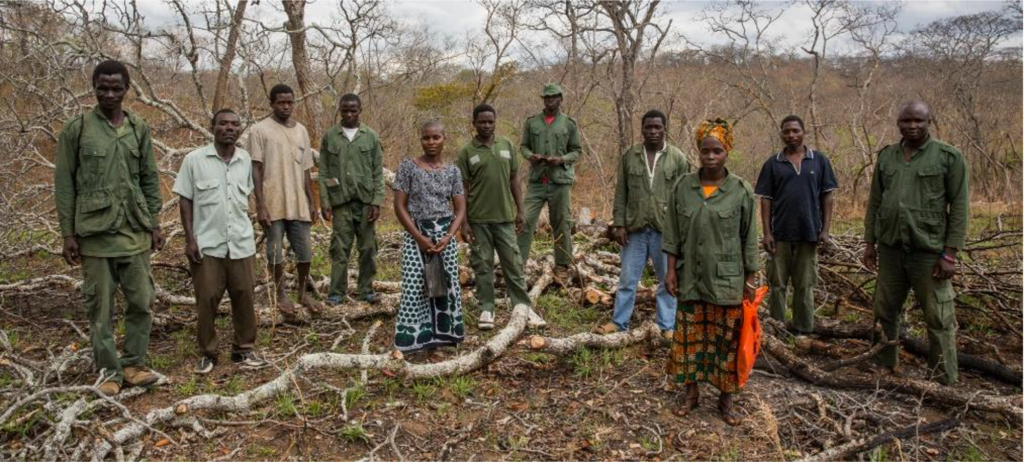
Conclusion – Sustainable Charcoal is not Straightforward
The paper illustrates that there are many compounding factors that make the future of sustainable charcoal difficult to determine. The two existing narratives represent only segments of the truth, and the many cultural and economic contexts that are conflated with charcoal production mean the true situation is not nearly as black or white as the existing narratives would lead one to believe. Therefore, as the article ends, it calls for an expansion of the current body of research concerning charcoal in order to push the sector toward greaters sustainability . SSA is facing an undeniable, unresolved, and unrelenting energy crisis, and in the interest of protecting the global ecosystem, charcoal as a viable and effective fuel source has been oversimplified and subsequently demonized. The concept of sustainable charcoal and the process to create a sustainable charcoal industry is not nearly as straightforward as current literature espouses, and the paper co-authored by Mwampamba works to bring attention to the commonly forgotten complicating factors associated with the charcoal industry. You can access the full report, here: “From Crisis to Context: Reviewing the Future of Sustainable Charcoal in Africa,” by Branch et al.
Dr. Tuyeni H. Mwampamba, member of TCP’s Board, is a contributing author of this paper. If you have issues accessing the report, please reach out to her at tuyeni@iies.unam.mx for a copy.
About the Author

Michael Deeter (he/him) is a current junior at the University of Michigan studying Public Policy with a minor in International Studies. He has a particular interest in the development of African economies and democracies with emphasis on the interrelation between increased foreign investment on the continent and economic outcomes. Within the Charcoal Project, he aids in curating the organization’s social media presence, aids in research, and writes blog posts concerning important developments within the charcoal sector in SSA. He hopes to volunteer with the Peace Corps following graduation, and views the Charcoal Project as an essential aspect of his professional and personal development.

